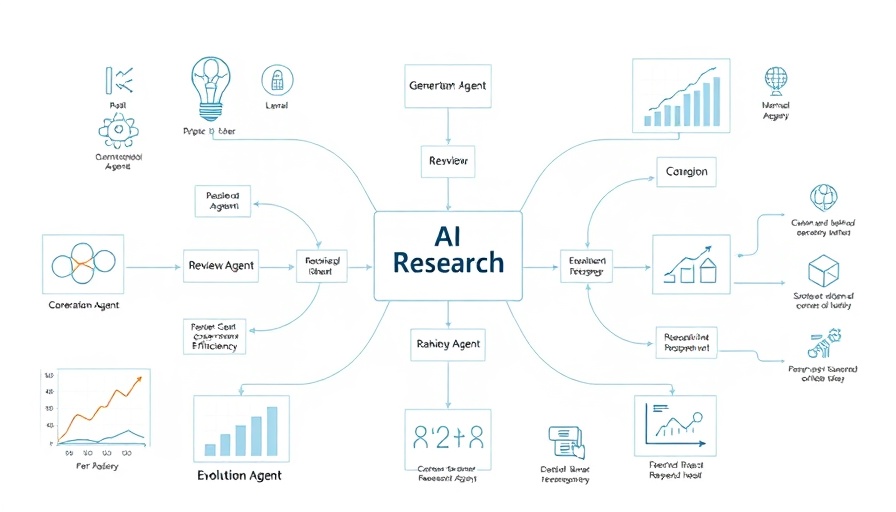
A New Age of Scientific Collaboration: Google’s AI Co-Scientist
As we continue to see advances in artificial intelligence, one area showing significant promise is scientific research. Google's latest initiative, the AI co-scientist, has recently been launched, offering a collaborative tool that pairs human intuition with machine efficiency. This innovation comes hot on the heels of another generative AI tool aimed at expediting scientific breakthroughs, highlighting how rapidly the tech landscape is evolving.
The Role of AI in Scientific Breakthroughs
Artificial intelligence has already made strides in various scientific fields, enhancing the pace and accuracy of research. From drug discovery to climate modeling, AI systems can analyze enormous datasets, identify patterns, and uncover insights that would take human researchers significantly longer to achieve. For CEOs and marketing managers in tech-driven industries, understanding the evolving relationship between AI and scientific discovery is crucial for adapting business strategies.
How Google’s AI Co-Scientist Functions
The AI co-scientist, built on the robust Gemini 2.0 model, utilizes a network of specialized agents designed to assist scientists in generating, evaluating, and refining research hypotheses. By incorporating natural language processing, scientists can directly interact with this system, inputting their ideas and receiving intelligent feedback that can enhance the research process. This interactive platform aims not just to accelerate the generation of hypotheses but to ensure that outputs are novel and grounded in existing scientific literature.
A Leap in Accelerating Research
One compelling achievement of the AI co-scientist was its success in addressing a decade-long scientific problem within just two days. This rapid problem-solving capability underscores the AI’s potential to streamline research methodologies. Early testers, including researchers from Stanford University and Imperial College London, express optimism about this tool's capacity to enhance research productivity, potentially redefining how scientific investigations are conducted.
Addressing Ethical and Safety Concerns
Despite its potential, the introduction of AI into the scientific realm raises valid ethical questions. Google has acknowledged these challenges, implementing safeguards against the misuse of such powerful technology. As AI systems become more integrated into research frameworks, it remains essential for organizations to develop guidelines that ensure responsible use, particularly in tackling sensitive issues such as health and safety.
Future Directions: Collaborative Innovation
With systems like the AI co-scientist emerging, the future of research will likely emphasize a collaborative relationship between humans and machines. By leveraging AI’s computational power and speed to handle complex tasks, researchers can focus their expertise on shaping the research direction, thus fostering innovation. For business professionals, this means considering how AI can be integrated into organizational strategies to keep pace with scientific advancements.
Conclusion: A Call to Adapt
As Google and other technology leaders invest in AI-driven scientific partnerships, it's crucial for professionals in tech-centric industries to recognize the evolving landscape. Embracing AI not only in research but also in marketing and business strategies could provide a competitive edge in an increasingly data-driven world. To explore the potential of AI in your field, consider how you can adopt these advancements into your organizational framework.
 Add Row
Add Row  Add
Add 




 Add Row
Add Row  Add
Add 

Write A Comment